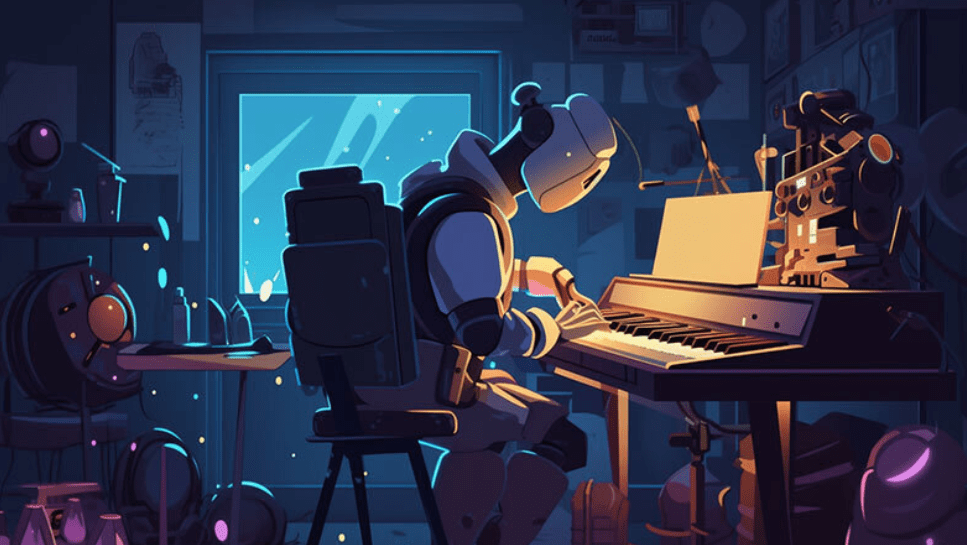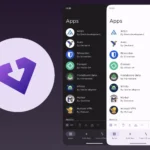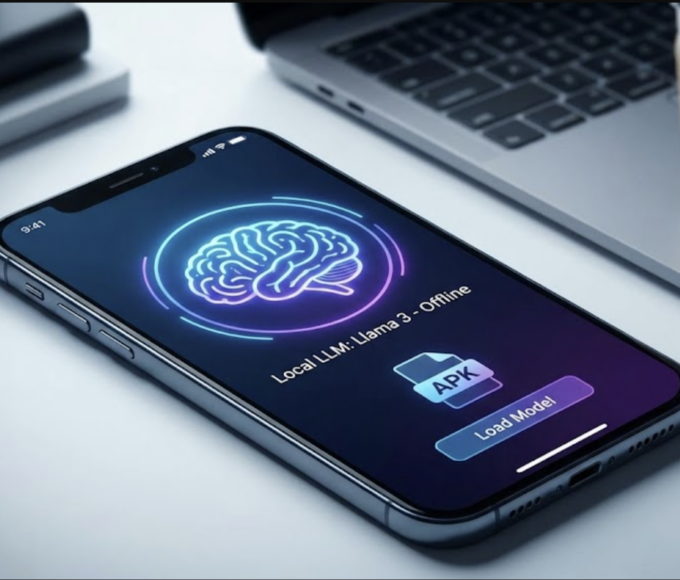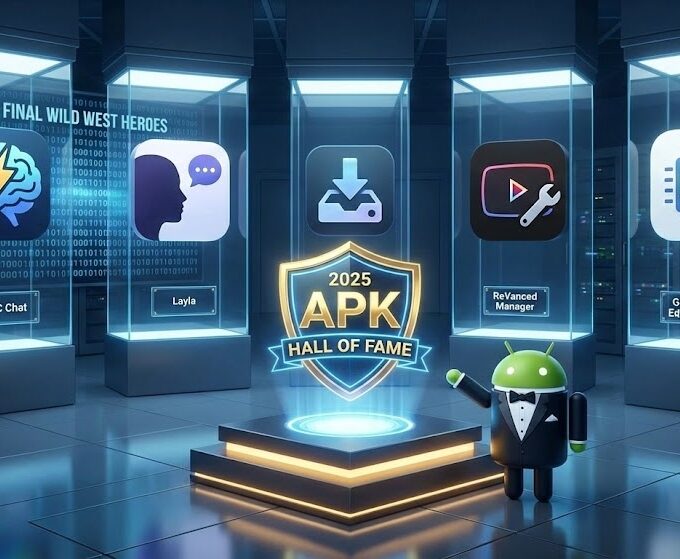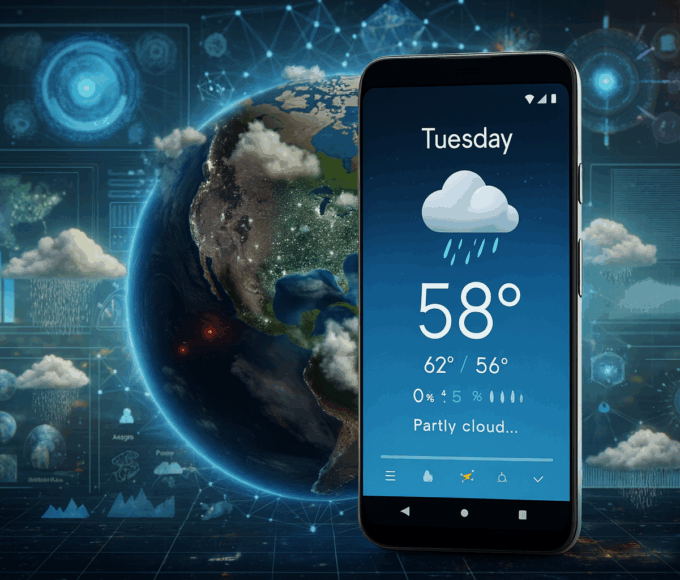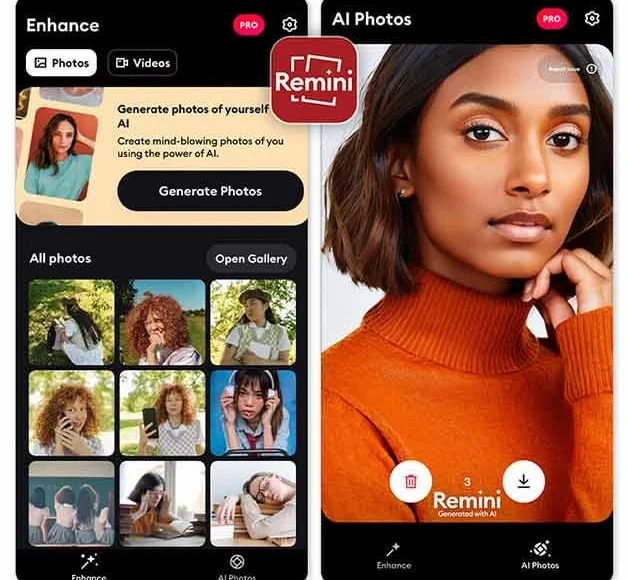If you’ve ever opened your music app, stared at a blank playlist, and thought, “I want something that sounds like a soft sunset but also a little dramatic because I haven’t done laundry,” then good news: you are exactly who modern AI music recommender APKs are built for.
And the best part? Many of these apps now run on-device. No cloud servers, no data-sharing nerves, no spinning “connecting…” wheel. Just your phone, its local AI model, and your questionable taste in sad indie tunes.
Let’s take a look at how these offline, mood-based AI music apps actually work, what’s available for Android in 2025, and why this trend matters for APK users.
Why Offline AI Music Recommendation Exists in 2025
Between 2023 and 2025, Android’s AI capabilities made a serious leap. The shift began with Google Gemini Nano, the company’s on-device large language model, which was introduced with Android 14 and further expanded under Android 15 (Android 2024 release & 2025 tuning). Gemini Nano supports offline summarization, classification, and user-intent detection, enabling apps to run AI tasks locally without sending data to external servers.
That change, combined with more powerful mobile chipsets – such as Qualcomm’s AI Engine Gen 4 and MediaTek’s APU upgrades – means that small recommendation models (typically 300M–1B parameters) can now run directly on a phone. This has opened the door for music apps that analyze patterns and mood entirely locally, based on:
- listening history
- time of day
- BPM preferences
- audio features (brightness, energy, tempo)
- simple activity detection (walking vs. stillness, phone sensors)
All without uploading your data – making it ideal for privacy-conscious Android users and APK testers.
Real Apps & Technologies Using On-Device AI in 2025
Here are some actual Android apps (and technologies behind them) that demonstrate how AI is being used for music recommendation and generation – with local or offline capabilities where noted.
Moodify

Moodify is one of the most direct examples of AI-driven, emotion-based music recommendation on Android. The app analyzes your emotional input using several modes: text descriptions, voice tone, or even facial-expression detection (depending on what the user allows). Based on this analysis, it recommends songs that match or gently shift your mood.
Moodify integrates with Spotify and other major music platforms, meaning it doesn’t rely on building its own music library – everything is sourced from your existing account. The recommendation engine uses AI to map emotional cues to song characteristics like tempo, brightness, and energy. Unlike many experimental mood-apps of the past, Moodify emphasizes user privacy by processing emotional cues locally where possible and keeping data minimal.
It’s essentially a “What should I listen to right now?” button with AI psychology backing it.
Endel
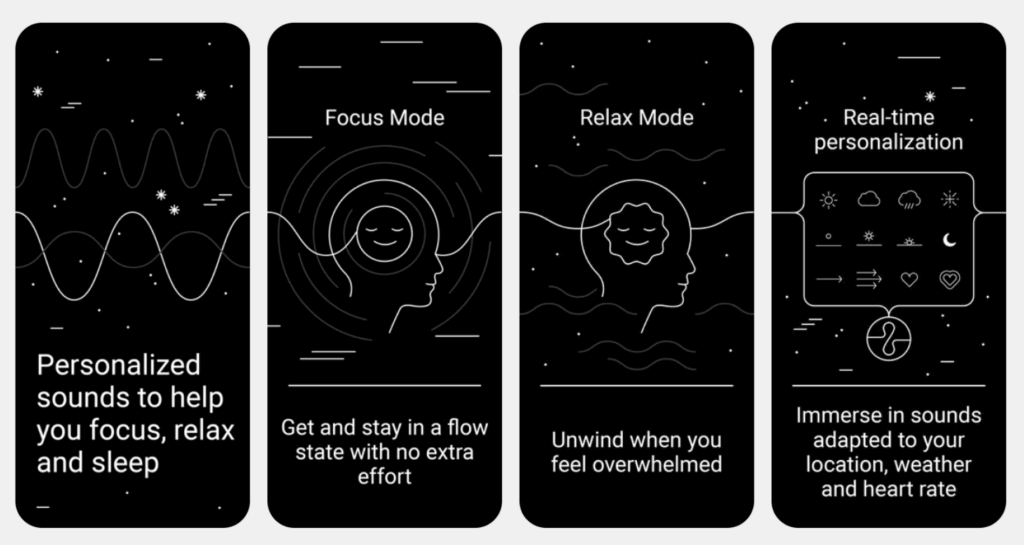
Endel is not a playlist app in the traditional sense – it creates AI-generated soundscapes that adapt to your environment in real time. The app uses multiple context signals such as time of day, local weather, circadian rhythm, movement data, and even heart rate (if you allow device sensor integration). Its engine, Endel Pacific, builds a unique audio stream designed for focus, relaxation, meditation, or sleep.
What makes Endel relevant here is that it uses on-device logic for many personalizations. Certain features continue to work fully offline, making it useful for travellers, commuters, and low-connectivity situations. Endel has scientific partnerships too – its focus and relaxation modes are based on neuroscience-backed acoustic principles.
If you want AI that “reads the room” and tailors sound to your current energy level rather than genre, Endel is the closest option available in 2025.
Soundiiz AI Playlist Generator
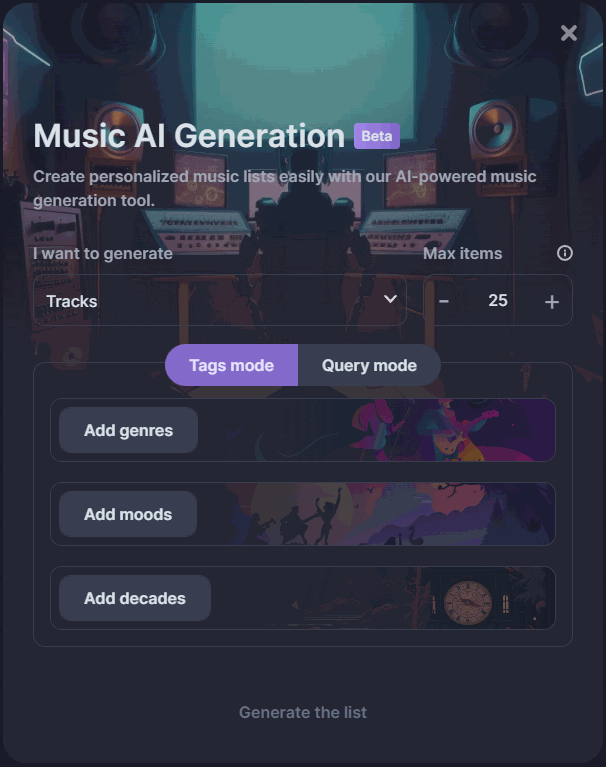
Soundiiz is well-known for transferring playlists across streaming services, but its AI Playlist Generator (launched and expanded through 2024–2025) is where things get interesting. Instead of simply mixing your existing songs, it analyzes your listening patterns, saved artists, genres, BPM preferences and even seasonal shifts, then generates complete playlists across Spotify, YouTube Music, Apple Music and others.
The app uses cloud-AI for recommendations, but the user-facing app on Android is lightweight and connects seamlessly to your libraries. For those who like automation, Soundiiz can create periodic auto-playlists – for example, “weekly chill tracks” based on whatever you’ve played in the past seven days.
It’s ideal for users who want AI-curated playlists without switching platforms
PlaylistAI
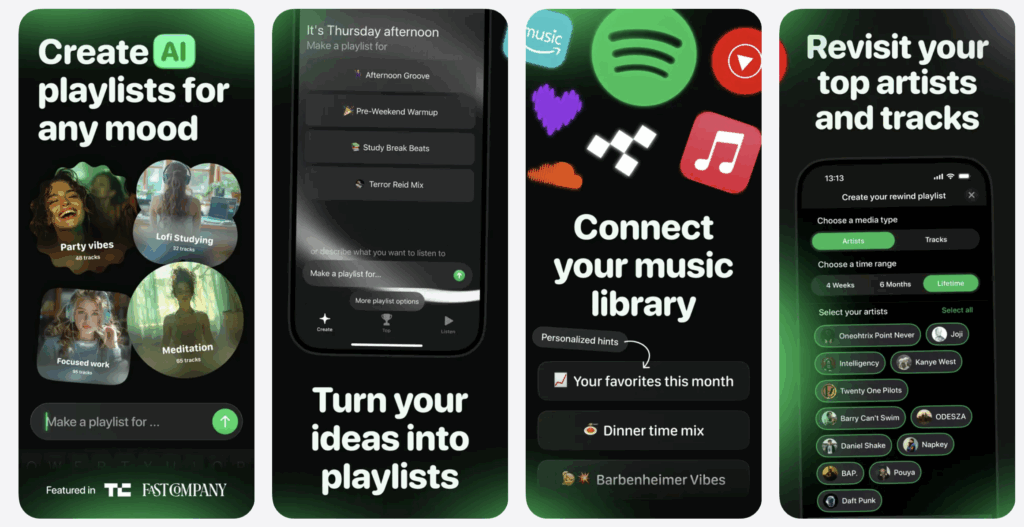
PlaylistAI is a natural-language playlist generator where you type (or speak) a request like:
- “Indie music that feels like an autumn evening”
- “Slow electronic beats for late-night studying”
- “Gym playlist that ramps up energy every track”
The app then produces a playlist on your chosen streaming service. PlaylistAI’s database and AI builder support Spotify, Apple Music, and YouTube Music, making it platform-flexible.
The app uses AI embeddings to interpret mood and theme words – so “stormy”, “nostalgic”, “cosmic”, “warm” or “cinematic” become playlist parameters rather than poetic filler.
While it depends on streaming rather than local files, PlaylistAI has become one of the most popular ways to create mood-based playlists quickly and without scrolling through endless genres.
Auravia
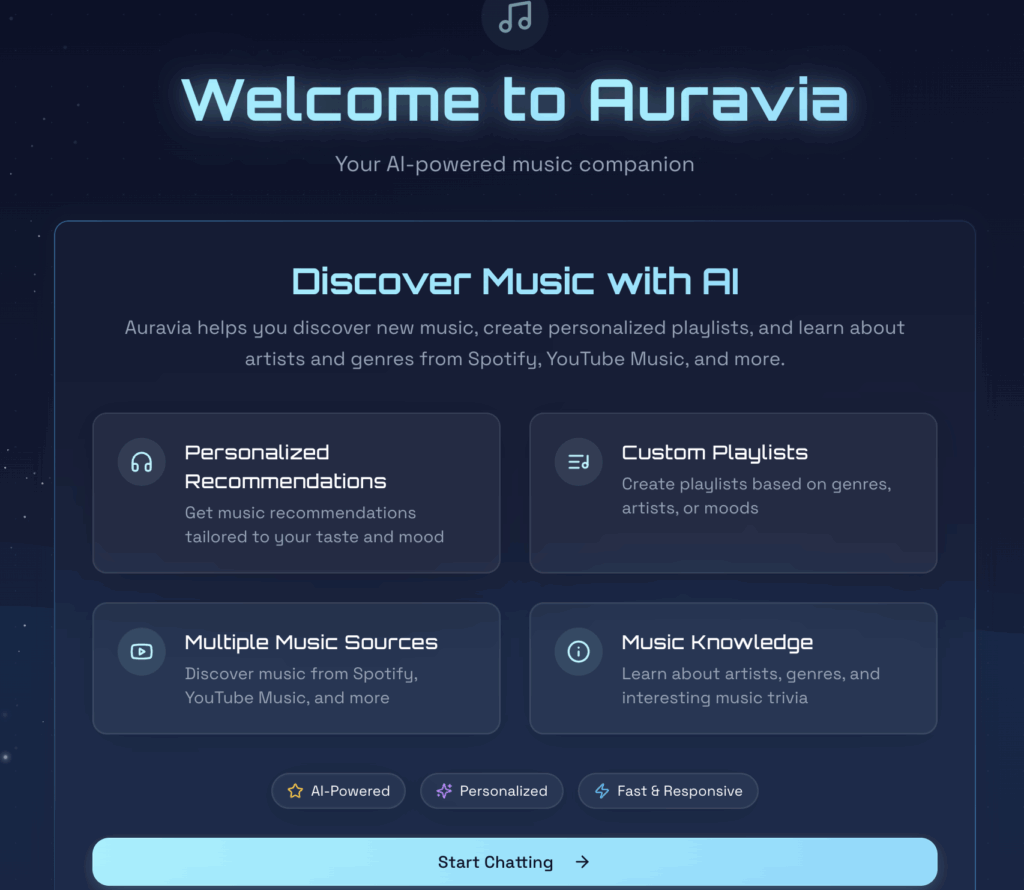
Auravia is a newer AI music-discovery tool, still in rollout with a public waitlist in 2025. The app uses conversational AI – meaning you can literally chat with it about what kind of music you want. Instead of a dropdown menu, you can tell it things like:
- “Give me new artists that sound a bit like early Tame Impala but softer.”
- “Find relaxing electronic music for a rainy Sunday.”
Auravia then generates playlists or artist recommendations using AI-driven music embeddings and metadata analysis.While many details are still evolving, Auravia represents the trend toward chat-based music discovery, which blends AI recommendation with a natural, intuitive interface.
How These AI Music Recommender APKs Work Behind the Scenes
You don’t need a PhD to appreciate the magic here – but here’s the simplified version.
- You load your local music files (offline library).
- The app runs each song through a lightweight audio embedding model (think of it as a musical fingerprint).
- The model labels each track with mood tags (“chill,” “melancholic,” “uplifting”).
- It learns your listening behavior using offline reinforcement learning (don’t worry, it doesn’t judge you for looping one sad song 40 times).
- It builds playlists based on your patterns + current context: time of day, activity, volume changes, even ambient noise.
Because everything runs locally, it’s fast, private, and works in airplane mode – ideal for travelers, commuters, and people who don’t trust cloud AIs with their emotional soundtrack.
What to Watch Out For
Before installing any AI music APK in 2025, keep this in mind:
- Verify model size: Large models may slow or stall older phones.
- Check permissions: Only audio-library access should be required; avoid apps demanding location unless it’s optional for mood context.
- Battery usage: First-time analysis of your library may be intensive (especially with thousands of tracks).
- Model transparency: Prefer apps that explain how their AI models classify emotions.
Privacy-first users will appreciate that offline apps don’t send musical fingerprints anywhere.
Final Thoughts: Are They Worth It?
Yes – this is one of the most genuinely useful AI upgrades to hit Android in years. Offline mood-based recommenders feel like having a personal DJ who actually knows your taste, doesn’t nag you to upgrade to Premium Ultra Platinum, and doesn’t send your listening habits to advertisers.
If Android is your home and APKs are your playground, AI music recommenders are the next category of apps worth exploring. They’re smart, private, fast, and – honestly – pretty fun.






